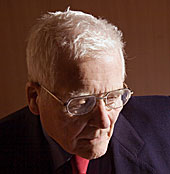AMES, Iowa - Agriculture's place in producing energy and reducing greenhouse gas emissions will be the center of discussion during Iowa State University's seventh annual bioeconomy conference.
This year's conference - "Growing the Bioeconomy: Solutions for Sustainability" - will be 9 a.m. to 5:30 p.m. Dec. 1 at the Scheman Building at the Iowa State Center. Information about registration and fees is here. Registration fees are waived for media covering the event.
This is the first year the Iowa State event is also a virtual conference that will be offered simultaneously around the region. Iowa State is working with 11 universities and two organizations to offer the conference via high-speed communications technology. Morning activities, including the keynote address, will originate from Iowa State. Afternoon sessions will be at the University of Nebraska, Michigan State University, North Dakota State University and Purdue University.
Jill Euken, the deputy director of Iowa State's Bioeconomy Institute and the conference chair, said the conference's goal is to look ahead to a sustainable bioeconomy.
And what does that mean?
"The definition of sustainability that we use at the Bioeconomy Institute is that we produce things in a manner that does not deplete resources for future generations and does not pollute the environment today," Euken said. "As we look at the bioeconomy growing, we need to think about growing feedstocks that not only lower greenhouse gas emissions, but also preserve the environment - especially our soils - for future generations to grow the feedstocks that they need for food and fuel."
One message that conference goers and viewers will hear is that biochar - a kind of charcoal produced by partially burning leaves, stalks and other crop residues - can be returned to farm fields as a way to address global climate change.
"If we took some of that plant produce and turned it into carbon - into charcoal - and buried that, that would be massively taking carbon - and carbon dioxide by reference - from the air and really doing something," said James E. Lovelock, an independent scientist and author who is the conference keynote speaker. "And I think it's very practical. The lifespan of charcoal in the soil looks to be almost infinite. There's a massive way of taking carbon out of the air."
Other morning speakers include Matt Liebman, Iowa State's Henry A. Wallace Endowed Chair for Sustainable Agriculture, who will speak about integrating conservation services with the production of crops for biofuels; and Johannes Lehmann, an associate professor of soil fertility management and soil biogeochemistry at Cornell University, who will address the benefits of biochar for carbon sequestration and for soil fertility.
Afternoon sessions will cover net greenhouse gas emissions from biofuel systems; non-traditional feedstocks; advances and breakthroughs in biofuels; and the economic and policy issues of bioenergy.
Other universities and organizations sponsoring the conference
are Kansas State University, Ohio State University, South
Dakota State University, the University of Minnesota, the
University of Missouri, the University of Wisconsin, the
University of Wyoming, the North Central Bioeconomy Consortium
and the North Central Sun Grant Initiative.
